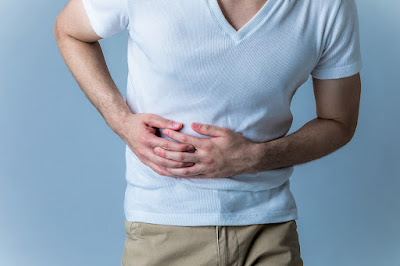Stomach pain is a common condition that affects people of all ages, from infants to the elderly. It can be caused by a variety of factors, ranging from minor digestive issues to serious medical conditions that require immediate attention.
In this article, we will explore the causes, symptoms, and treatments for stomach pain, as well as some tips for preventing it from occurring.
Causes of Stomach Pain
Stomach pain can be caused by many different factors, including:
1. Digestive Issues: The most common cause of stomach pain is digestive issues, such as acid reflux, gastritis, and peptic ulcers. These conditions can cause inflammation in the stomach lining, leading to pain and discomfort.
2. Food Allergies and Intolerances: Food allergies and intolerances can also cause stomach pain. When someone eats something they are allergic or intolerant to, their body may react by producing histamine or other inflammatory substances, leading to abdominal pain.
3. Infections: Bacterial, viral, and parasitic infections can all cause stomach pain. In some cases, these infections can lead to more serious conditions, such as food poisoning or gastroenteritis.
4. Stress and Anxiety: Stress and anxiety can also cause stomach pain, as they can affect the digestive system and lead to symptoms such as bloating, cramping, and discomfort.
5. Menstrual Cramps: Women may experience stomach pain during their menstrual cycle due to cramping of the uterus.
6. Medications: Certain medications, such as non-steroidal anti-inflammatory drugs (NSAIDs), can cause stomach pain as a side effect.
Symptoms of Stomach Pain
The symptoms of stomach pain can vary depending on the underlying cause. Some common symptoms include:
1. Abdominal Pain: Pain in the stomach or abdominal area is the most common symptom of stomach pain.
2. Bloating and Gas: Bloating and gas can cause discomfort and pain in the stomach.
3. Nausea and Vomiting: Nausea and vomiting are common symptoms of stomach pain, especially if the pain is caused by an infection or food poisoning.
4. Diarrhea or Constipation: Changes in bowel movements can also occur with stomach pain, such as diarrhea or constipation.
5. Fever: Infections that cause stomach pain may also cause fever.
6. Blood in Stool: In some cases, stomach pain may be accompanied by blood in the stool, which can indicate a more serious condition.
Treatments for Stomach Pain
The pait dard ka herbal ilaj will depend on the underlying cause. Some common treatments include:
1. Over-the-Counter Medications: Over-the-counter medications such as antacids, pain relievers, and anti-diarrheal medicines can help alleviate stomach pain.
2. Antibiotics: If the pain is caused by a bacterial infection, antibiotics may be prescribed.
3. Lifestyle Changes: Making lifestyle changes such as avoiding certain foods, reducing stress, and increasing physical activity can help reduce stomach pain.
4. Surgery: In rare cases, surgery may be necessary to treat underlying medical conditions that cause stomach pain.
Preventing Stomach Pain
While stomach pain cannot always be prevented, there are some steps you can take to reduce your risk of experiencing it:
1. Eat a Healthy Diet: Eating a healthy diet that is rich in fruits, vegetables, and fiber can help reduce the risk of digestive issues that can cause stomach pain.
2. Stay Hydrated: Drinking plenty of water and staying hydrated can help keep the digestive system functioning properly.
3. Exercise Regularly: Regular exercise can help reduce stress and improve digestion, which can help reduce the risk of stomach pain.
4. Avoid Trigger Foods: Avoiding foods that trigger digestive issues, such as





No comments:
Post a Comment